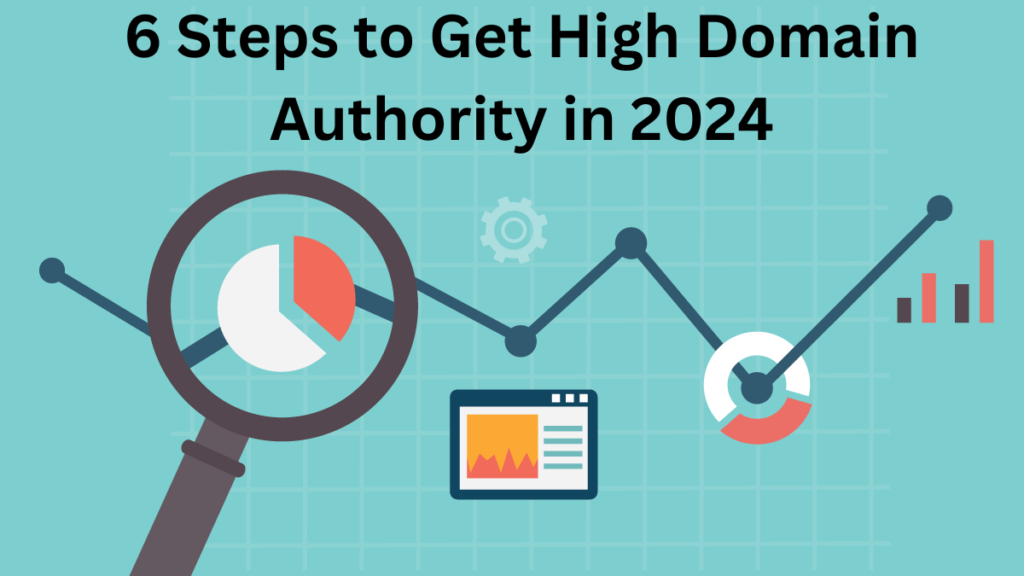In the ever-evolving landscape of digital marketing and SEO, achieving and maintaining a high Domain Authority (DA) is crucial for online success. As we step into 2024, the strategies for boosting DA have adapted to the changing algorithms and user expectations. Let’s delve into the actionable steps you can take to elevate your website’s Domain Authority.
Table of Contents
What is Domain Authority
Moz created the Domain Authority (DA) score, which is a measure of a website’s likelihood of appearing in search engine result pages (SERPs). Higher domain authority ratings indicate a higher chance of ranking. Domain authority scores vary from one to 100.
Domain Authority is computed using dozens of parameters and is based on information from our Link Explorer web index. The Domain Authority calculation itself makes use of a machine learning model to predictably identify a “best fit” technique that most closely matches the ranks of thousands of real search results—the benchmarks against which we scale—with our link data.
1. Quality Content is King
Understanding the Role of Content
Content remains at the forefront of SEO efforts. High-quality, relevant, and valuable content attracts both users and search engines. Invest in creating content that addresses user intent and provides genuine value.
Strategic Keyword Integration
Integrate relevant keywords naturally within your content. Conduct thorough keyword research to identify terms that align with your niche and resonate with your target audience.
Regular Content Updates
Keep your content fresh and up-to-date. Regularly update existing posts to reflect the latest information, trends, and developments in your industry.
2. Build a Robust Backlink Profile

Focus on Quality Over Quantity
Gone are the days of mass link-building. Prioritize quality over quantity when acquiring backlinks. High-authority, relevant backlinks carry more weight in the eyes of search engines.
Diversify Your Backlink Sources
A diverse backlink profile from various reputable sources is more favorable. Seek links from authoritative websites, industry publications, and reputable directories.
Natural Link Building Strategies
Encourage natural link building by creating shareable content, fostering relationships with influencers, and participating in industry discussions.
3. Optimize On-Page Elements

Technical SEO Audits
Regularly conduct technical SEO audits to identify and fix issues that may impact your DA. Focus on factors like page load speed, mobile-friendliness, and proper use of heading tags.
User-Friendly Navigation
Ensure a seamless and intuitive user experience by optimizing your website’s navigation. Easy navigation not only benefits users but also contributes to search engine crawlability.
Internal Linking Strategies
Strategically incorporate internal links to connect relevant pages within your website. This helps distribute authority across various pages and enhances the overall structure.
4. Social Media Integration
Harness the Power of Social Signals
Search engines consider social signals as a factor in determining a website’s authority. Actively engage on social media platforms, share your content, and encourage social sharing.
Optimize Social Media Profiles
Optimize your social media profiles with accurate information and links back to your website. Consistent branding across platforms enhances your online presence.
Encourage Social Proof
Leverage user-generated content and positive reviews on social media to build credibility. Social proof can indirectly impact your website’s authority.
5. Mobile Optimization is Non-Negotiable
Mobile-First Indexing
With the prevalence of mobile devices, search engines prioritize mobile-first indexing. Ensure your website is fully optimized for mobile users, including responsive design and fast load times.
User-Friendly Mobile Experience
Create a user-friendly experience on mobile devices. Easy navigation, readable fonts, and mobile-friendly multimedia contribute to a positive user experience.
6. Strategic Influencer Partnerships
Collaborate with Industry Influencers
Build relationships with influencers in your industry. Collaborate on content, co-host events, or participate in joint ventures. Influencer endorsements can significantly impact your website’s authority.
Guest Posting on Influential Platforms
Contribute guest posts to authoritative websites in your niche. This not only exposes your brand to a wider audience but also establishes your expertise in the field.
Participate in Industry Events
Actively participate in industry events, conferences, and webinars. Networking with influencers and industry leaders can lead to valuable backlinks and collaborations.
7. Continuous Monitoring and Adaptation
Regular Performance Analysis
Utilize analytics tools to regularly monitor your website’s performance. Track key metrics, including traffic, bounce rate, and conversion rates, to identify areas for improvement.
Adapt to Algorithm Changes
Stay informed about search engine algorithm updates. Adapt your strategies to align with evolving algorithms and industry best practices.
User Feedback and Satisfaction
Prioritize user satisfaction. Pay attention to user feedback, reviews, and comments. A positive user experience contributes to increased authority over time.
Fanil
Achieving and maintaining a high Domain Authority in 2024 requires a multifaceted approach. By focusing on quality content, building a strong backlink profile, optimizing on-page elements, integrating social media strategies, prioritizing mobile optimization, fostering influencer partnerships, and continuously monitoring performance, you can position your website as a trusted authority in your industry.












1 Comment
Wow, incredible blog structure! How long have you ever been blogging for?
you made blogging glance easy. The whole look of
your web site is excellent, let alone the content material!
You can see similar here ecommerce